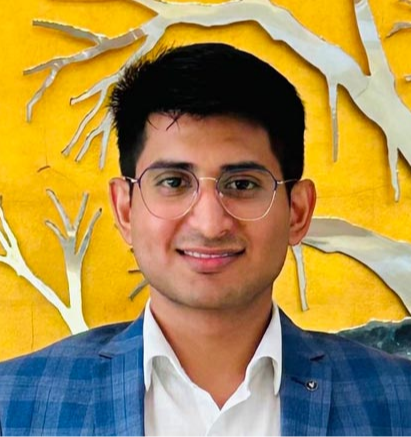-
CENTRES
Progammes & Centres
Location
The timing of the flare-up is worrying for a region already beset with instability, from the civil war in Myanmar to maritime tensions in the South China Sea

The simmering border tensions between Thailand and Cambodia have erupted into deadly clashes, the most serious escalation in over a decade. What began as a protracted dispute over a centuries-old temple has morphed into a militarised standoff, leaving both countries scrambling to contain the fallout.
At the heart of the conflict lies the Preah Vihear temple, a UNESCO World Heritage site perched dramatically on a cliffside overlooking the Cambodian plains. Although the International Court of Justice (ICJ) awarded the temple to Cambodia in 1962, the surrounding 4.6 square km remain fiercely contested — both symbolically and strategically.
July saw the fragile calm shattered as troops exchanged fire near the disputed zone. Artillery blasts echoed across the forested borderlands. At least 12 people — 11 civilians and one Thai soldier — were killed, and around 31 civilians were injured, displacing over 40,000 villagers on both sides. Schools and markets have shut down, and fears of landmines are once again gripping the region.
Due to conflicting reports from both sides, it is difficult to determine which party initiated the conflict. Both parties have accused the other. According to Thailand’s military, the confrontation began when Cambodian troops approached a Thai post near the contested site on Thursday morning, deploying surveillance drones and firing rockets that struck a civilian area. Thailand retaliated with airstrikes from six F-16 fighter jets at two Cambodian military targets. The fighting, according to Thailand’s Rear Admiral Surasant Kongsiri, spread to at least six locations along the border. With tensions mounting, Thailand has reinforced positions in Sisaket province, citing the need to protect local populations.
With the conflict expanding, the government has evacuated around 5000 Cambodian citizens from Oddar Meanchey province, bordering Thailand, to safe locations. Additionally, to ensure order in the country, Hun Manet has urged Cambodian citizens to maintain “morality and dignity” and refrain from engaging in any unwarranted actions against the Thai Embassy and its citizens. While the Prime Minister has shown strength, he has called for the immediate intervention of the UN Security Council.
Behind the frontlines, domestic political pressure in Thailand is mounting. Nationalist voices — both in parliament and on social media — are calling for a hard-line response. Earlier in the month, two landmine blasts injured eight Thai soldiers, and shelling reportedly hit a hospital in Surin province, causing injuries to civilians. Amid the rising violence, diplomatic ties have frayed: Thailand recalled its ambassador and expelled Cambodia’s envoy, prompting reciprocal action. Thailand’s acting Prime Minister, Phumtham Wechayachai, stated, “There has been no declaration of war,” but emphasised that “hostilities must cease before negotiations can begin,” warning that Cambodian forces used heavy weapons without clear targets.
On the other hand, the Cambodian Ministry of National Defence has accused Thailand of altering the status quo through covert action at Ta Moan Thom Temple on Thursday morning, violating their bilateral agreement. Furthermore, Cambodia accused the Thai military of opening fire on Thursday morning, following which Cambodia retaliated. Defending Cambodia’s action, Hun Manet, the Cambodian Prime Minister, stated, “Cambodia has always stood by its principle of resolving disputes through peaceful means. But in this situation, we have no choice but to respond with military force against the armed aggression.”
With the conflict expanding, the government has evacuated around 5000 Cambodian citizens from Oddar Meanchey province, bordering Thailand, to safe locations. Additionally, to ensure order in the country, Hun Manet has urged Cambodian citizens to maintain “morality and dignity” and refrain from engaging in any unwarranted actions against the Thai Embassy and its citizens. While the Prime Minister has shown strength, he has called for the immediate intervention of the UN Security Council.
The timing of the flare-up is worrying for a region already beset with instability, from the civil war in Myanmar to maritime tensions in the South China Sea. A fresh border confrontation between Thailand and Cambodia risks deepening ASEAN’s crisis of credibility as a regional peace-broker. With nationalist fervour rising, political rhetoric hardening, and the religious symbolism of the disputed site adding emotional weight, the situation is fast approaching a tipping point.
At the heart of the impasse lies ASEAN’s institutional weakness. Despite having frameworks such as the ASEAN Charter and the Treaty of Amity and Cooperation, the bloc’s non-interference principle and consensus-based approach often hinder timely action. The ongoing standoff underscores the need for ASEAN — and its partners — to move beyond diplomacy-as-usual and prevent a repeat of history.
Recognising the urgency, Malaysian Prime Minister Anwar Ibrahim, who currently chairs ASEAN, has called on both sides to “stand down” and open dialogue. Other regional players — including China, Singapore, Japan, and the Philippines — have echoed similar appeals. The memory of the 2008–2011 standoff, which left 40 dead, looms large. If unchecked, the current crisis could spiral out of control.
At the heart of the impasse lies ASEAN’s institutional weakness. Despite having frameworks such as the ASEAN Charter and the Treaty of Amity and Cooperation, the bloc’s non-interference principle and consensus-based approach often hinder timely action. The ongoing standoff underscores the need for ASEAN — and its partners — to move beyond diplomacy-as-usual and prevent a repeat of history.
This commentary originally appeared in The ndian Express.
The views expressed above belong to the author(s). ORF research and analyses now available on Telegram! Click here to access our curated content — blogs, longforms and interviews.

Sreeparna Banerjee is an Associate Fellow in the Strategic Studies Programme. Her work focuses on the geopolitical and strategic affairs concerning two Southeast Asian countries, namely ...
Read More +
Abhishek Sharma is a Junior Fellow with the ORF’s Strategic Studies Programme. His research focuses on the Indo-Pacific regional security and geopolitical developments with a ...
Read More +